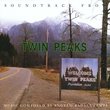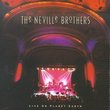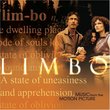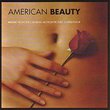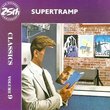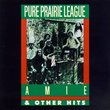| All Artists: Emil Grigoryevich Gilels, Martin Lovett, Peter Schidlof, Rainer Zepperitz, Amadeus Quartet Title: Schubert: Trout Quintet, Death and the Maiden / Amadeus Quartet Members Wishing: 0 Total Copies: 0 Label: Deutsche Grammophon Release Date: 6/10/1997 Genre: Classical Styles: Chamber Music, Historical Periods, Modern, 20th, & 21st Century Number of Discs: 1 SwapaCD Credits: 1 UPC: 028944974621 |
Search - Emil Grigoryevich Gilels, Martin Lovett, Peter Schidlof :: Schubert: Trout Quintet, Death and the Maiden / Amadeus Quartet
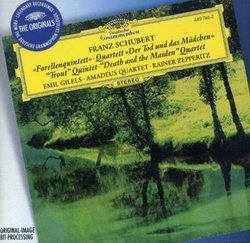 | Emil Grigoryevich Gilels, Martin Lovett, Peter Schidlof Schubert: Trout Quintet, Death and the Maiden / Amadeus Quartet Genre: Classical
|
Larger Image |
CD DetailsSimilarly Requested CDs
|
CD ReviewsCatch This "Trout" Michael B. Richman | Portland, Maine USA | 11/15/2000 (5 out of 5 stars) "This performance of Schubert's "Trout" Quintet and the "Death and the Maiden" Quartet by the Amadeus String Quartet is simply first rate. The great Emil Gilels joins the ensemble for the "Trout" recording, and needless to say his playing is outstanding and completely complimentary. There are other stellar "Trout" recordings out there -- a recent digital disc featuring Yo-Yo Ma and Edgar Meyer on Sony, and another older analog stereo title featuring the Guarneri SQ and Emanuel Ax on RCA High Performance come to mind. I have also enjoyed listening to versions of "Death and the Maiden" by the Emerson String Quartet, and the one by the Melos Quartet on the DG "Collectors Edition" box set. If you are looking for a larger collection of Schubert's string pieces one of the aforementioned titles may be your best bet. However, if all you desire is a quintessential recording of Schubert's two most famous pieces for strings, then you can't go wrong with this "DG Originals" disc by Amadeus." Two classics from 1958 and 1975, some fine and some not so f Discophage | France | 08/22/2006 (4 out of 5 stars) "DG has brought together, now on their "The Originals" collection, two recordings dating from different periods of the Amadeus quartet's recording career: in 1958, then the very early days of stereo, they rerecorded Schubert's "Death and the Maiden" which they had already committed to mono LP in 1953 (now in an "Original Masters" DG box). The "Trout" Quintet, recorded in 1975 with Emil Gilels (with bassist Rainer Zepperitz), is their second go at the piece (the first was with Hebzibah Menuhin on EMI in 1958, reissued on CD by EMI and Testament) and dates from their later years; the Gilels and Amadeus quartet encounter was a purely studio affair which before this recording had resulted in the Brahms 1st piano quartet. The great thing about the opening "allegro vivace" (taken with its repeat) in particular and the "Trout" quintet in general is that Gilels and his partners do not let their interpretation be colored by any pre-conception of a "gemütlich", e.g. easy-going and genial Schubert. On the contrary, they give full weight and impact to the accents and piquant perkiness to the staccato markings, resulting in a reading of great vigor and zest. Gilels proves a fine chamber player, with crisp playing and a fine sense of balance with his partners. Not so great, on the other hand, is the well-known and distinctive feature of the Amadeus quartet: namely, Norbert Brainin's thin violin tone and sometimes pitch uncertainty, Martin Lovett's dry cello emission and Peter Schidlof's nasal viola. This is especially penalizing in the 2nd movement's deeply moving viola & cello cantilena (1:30), which doesn't approach the gripping lyricism which others impart to it. The 3rd movement's Presto is brisk (though not as brisk as Curzon-Wiener Oktett members) but string tone is somewhat shrill; fortunately (and unlike the afore-mentioned Curzon-Wiener) the pace is maintained in the central trio, consequently avoiding the usual mawkishness. In the 4th movement's "Trout" theme, the tempo is somewhere in between Curzon's lively briskness and Serkin's more sedate deliberation, and the ensuing variations maintain a reasonably acceptable unity of tempo, with a lively and carefree coda; but violin tone retains a not entirely pleasant edge of shrillness. The Finale is nicely brisk, forward-moving and carefree, reminiscent of Serkin and Marlboro friends from 1967. All things considered, despite the slight discomfort of the Amadeus' tone production, this is a fine version of Schubert's piano quintet. Now, for more choices of "Trouts" recorded since 1975, see my reviews of the Beaux Arts Trio (Philips), Brendel-Cleveland (Philips), Richter-Borodine (EMI), Ax-Ma and partners (Sony), Badura-Skoda (Amiata), Adès-Belcea (EMI) among others. The "Death and the Maiden" is early stereo and the sound is somewhat dry, not as full as that afforded by Boston Skyline's transfer to the Fine Arts quartet from 1962 (with the same coupling - see my review), but it is still quite acceptable and with no audible tape-hiss. Interpretively, the opening "Allegro" a little more spacious and slightly less biting than the Amadeus' earlier mono attempt, with a tendency to be a little finicky on small details - and of course in much better sound. As before, the opening D triplets are taken legato rather than the written staccato and rushed headlong into; then ensues a reading that is vigorous and dogged rather than fast and furious; it commendably avoids any mawkish prettifying of the second, lyrical theme, which is given instead a fine rhythmic snap on its further developments, though not as biting as in the earlier version. As in 1953, the famous "Death and the Maiden" theme (2nd movement) is taken at a forward-moving pace, true to Schubert's "andante con moto" indication, and tempo relationships in the ensuing variations are more coherent than before, with less "gas and breaks"; Martin Lovett's cello voices a profound and moving chant in the 2nd variation, and the 3rd variation sounds like the heavy and powerful canter of warhorses rather than like Death furiously whipping its steed. Where this 1958 remake varies most from its 1953 predecessor is in the Scherzo and Finale, where the Amadeuses now go for power and weight more than rage and fury, but the Scherzo's middle trio maintains a laudable unity of tempo and displays charm without mawkishness. Likewise the "Presto" Finale is more deliberate than five years before and elicits less of the sense of a race to the abyss - more of an unhurried - but inexorable? - canter. One can think of more gripping "Death and the Maiden" quartets (see my reviews of the Hollywood Quartet-Testament, Juilliard-Testament, Alban Berg Quartet-EMI, Brodsky-Teldec, Petersen-Capriccio among others) but this one has nonetheless something of a classic poise." Interpretative solvency! Hiram Gomez Pardo | Valencia, Venezuela | 06/05/2007 (5 out of 5 stars) "The main virtue of Emil Gilels as colossal pianist was always ironically his main failure: his extreme coldness. But when he played with the Amadeus quartet, something inside him seemed to bright with radiant intensity and his temperament showed us his Dionysian side, a remarkable and not precisely his main landmark.
This was successfully what it happened with this remarkable version of the celebrated Quintet Op 144 best known as "The trout". Filled of nostalgic reminiscences and genuine Viennese flavor, they conveyed us the own core of this work. "The Death and the Maiden" is beautifully performed although I think no one has been able to surmount two insurmountable historical achievements of a recent past: the first version belongs to the famous ensemble Konzerthaus of Vienna of the middle fifties and the other is performed by the famous ensemble Chiringilian. My favorite Trout version until this date: Horzowski and the Julliard ensemble, although I recognize the memorable versions of Paul Badura Skoda, Andras Schiff, Clifford Curzon, Rudolf Serkin and Arthur Schnabel. " |

 Track Listings (9) - Disc #1
Track Listings (9) - Disc #1
